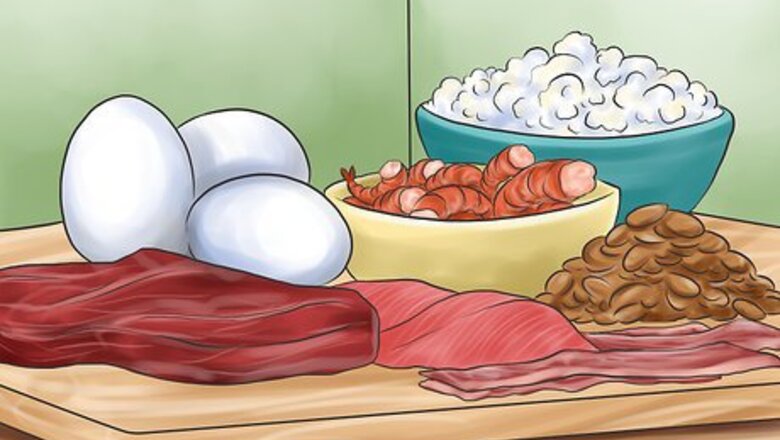
views
Maintaining a Healthy Diet for Your Scalp
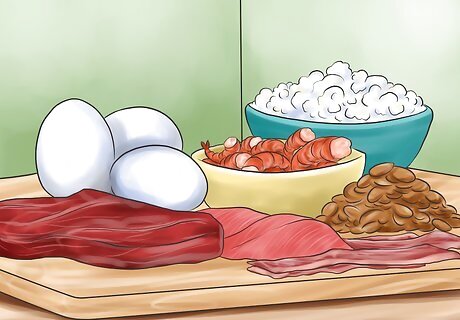
Get some protein. Protein is important for maintaining a healthy scalp and hair. Try to eat proteins that have other important nutrients for scalp health, like, zinc, iron, and vitamin B. Good examples of these include beef, eggs, shrimp, bacon, pumpkin seeds, cottage cheese, and salmon.
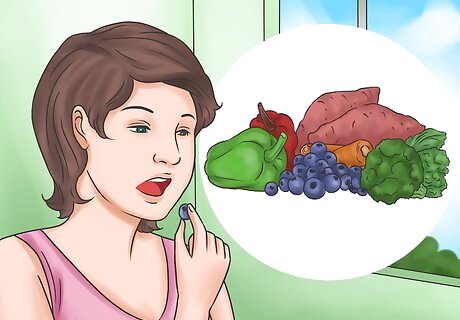
Eat your vitamins. Vitamin A and C help circulate oxygen to the scalp. To include these nutrients in your diet, eat blueberries, carrots, sweet potatoes, spinach, walnuts, and bell peppers All of these foods include several nutrients that are conducive to a healthy scalp. You can also supplement your diet with daily multivitamins. For vitamin C eat more bell peppers, blueberries, and dark leafy vegetables. For vitamin A eat sweet potatoes, dark leafy vegetables, and carrots.
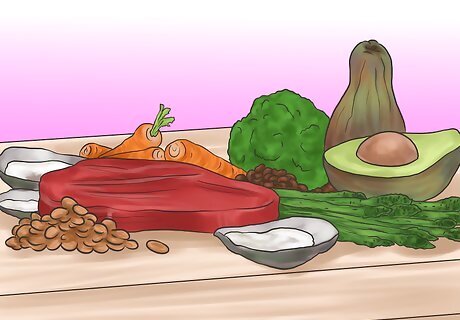
Incorporate iron, zinc, and folic acid into your diet. Zinc will help keep hair on your head and dandruff off it. Folic acid will encourage cell renewal in your scalp. Iron helps prevent thinning and discoloration of your hair. Good sources of these nutrients include oysters, peas, lentils, and prunes. For additional iron eat more beef, chicken liver, oysters, clams, mussels, and sardines. For additional zinc eat more oysters, crab, lobster, meat, legumes, nuts, dairy products, and fortified cereals. For additional folic acid eat more asparagus, broccoli, beans, lentils, avocado, okra, nuts, seeds, cauliflower, and carrots.
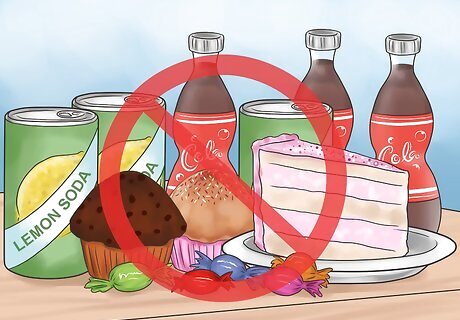
Cut down on sugar. Sugar consumption can aggravate a case of dandruff. Cut down on sodas, baked goods, and candy. Many processed foods also include a lot of sugar.
Caring for Your Hair and Scalp Properly
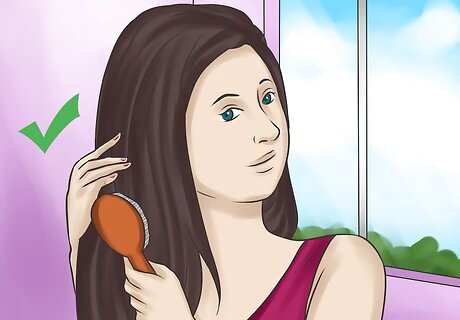
Brush your hair daily. Brushing your hair keeps it detangled, stimulates circulation, and distributes oil throughout your head. If possible, brush with a natural bristle brush. Plastic bristles do not spread oils as effectively as those made from plant or boar fibers. Brush your hair gently, and only brush enough to remove tangles. Overbrushing can damage your hair.
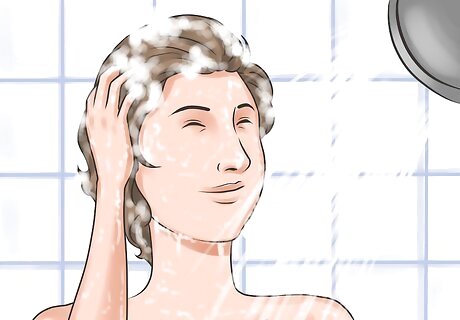
Shampoo a minimum of once a week. Washing your hair too often will strip your hair of its natural oils. Washing less often will cause buildup to collect on the scalp and slow hair growth. If you have particularly oily hair, you can wash once a day with a gentle, sulfate-free shampoo. When you shampoo, give yourself a scalp massage to remove dead skin cells and encourage circulation. Spend a couple of minutes rubbing the shampoo into your scalp. Everyone needs a different type of shampoo. Consult a hair stylist for recommendations about what might work for you.
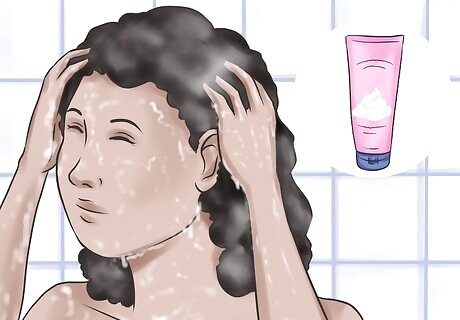
Condition close to your scalp to moisturize it. This is particularly important after you shampoo, because shampooing can dry your scalp out. Be sure to condition your scalp every time you wash, starting at the ends and working up to about ⁄4 in (0.64 cm) from your scalp. After you rinse out your conditioner, massage your scalp gently using your fingertips and work them around your scalp with small, circular motions.
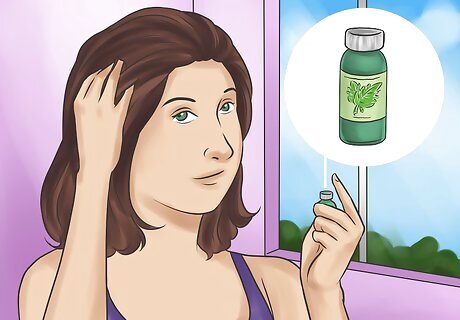
Apply essential oils. Massage essential oils into your scalp before you go to bed and shampoo them out when you wake up. Essential oils can be too powerful to apply directly into the scalp. Make sure that you purchase a mixture that is already diluted. Different oils are said to have their own distinctive effects. Basil is said to promote hair growth and treat oily skin. Lavender is a treatment for itchiness and dandruff.
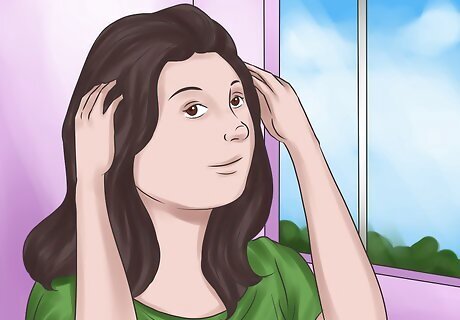
Massage your scalp. Firmly rubbing and applying pressure to your scalp can increase circulation, preventing hair loss. Performing a scalp massage with essential oils can provide even more benefits. Try it while you're shampooing your hair or seek the assistance of a professional for greater benefit. Press your fingertips into your scalp and apply gentle pressure. Then, move your fingers around your scalp using small, circular motions.
Preventing Damage
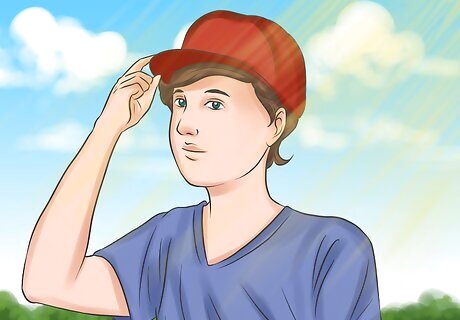
Protect your scalp from the sun by wearing a hat. Getting a sunburn on your scalp causes the skin on your scalp to thin out. Eventually, this damage will produce thinning of your hair as well. To protect your scalp from sun damage, wear a hat when you know that you will be at risk of sunburn. Frequent use of a hat could cause tension around the hairline, promoting breakage. It's best to switch it up with a scarf so tension isn't on the same spot.
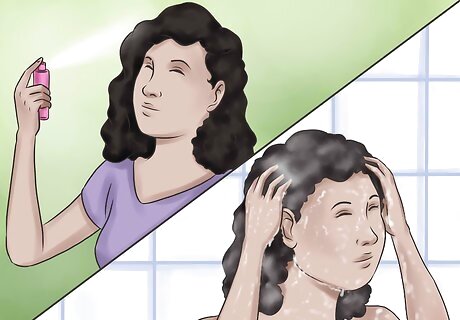
Replace your regular shampoo once a month with a clarifying shampoo. Products that hold your hair in place, like hairspray and gel, can cause buildup on your hair and scalp. The chemicals in these products may irritate your skin and hinder hair growth. If you use these products, use a clarifying shampoo once a month to remove buildup.
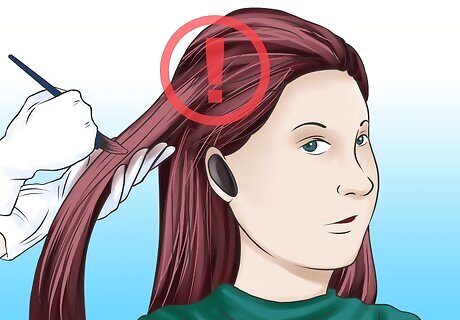
Be cautious if you feel burning or discomfort when you color your hair. It is not normal for your scalp to burn when you are having it colored. If it does, that means your scalp is too dry. Talk to your hair stylist about what you feel. Wash your hair less frequently—or use more gentle shampoo--and apply hair oil to your scalp more frequently.
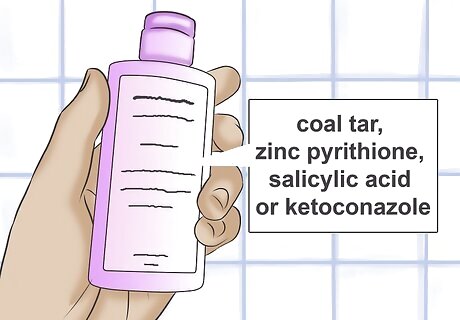
Clean out dandruff. If you have white flakes accumulating on your shoulders, begin caring for your scalp with a special anti-dandruff shampoo. Look for shampoos that have anti-dandruff ingredients: coal tar, zinc pyrithione, salicylic acid, selenium, or ketoconazole. If the dandruff persists after several weeks of treatment, visit a doctor for a prescription shampoo. Try applying aloe vera to your scalp to help heal any damage or abrasions.
Keep stress under control to prevent hair loss. High stress levels can cause your hair to fall out, so it is important to manage your stress. Talk to your doctor if your hair starts to fall out and you suspect that it may be due to stress. Use a relaxation technique as part of your daily routine, and make sure to take time to do something you enjoy every day. Some good options for managing stress include: Deep breathing exercises Yoga Meditation















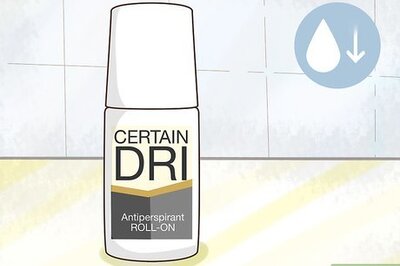




Comments
0 comment